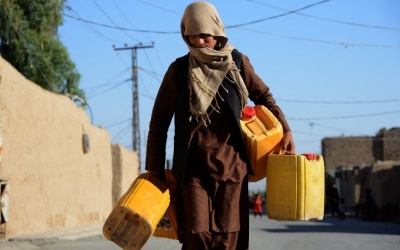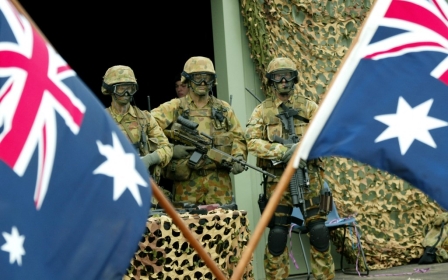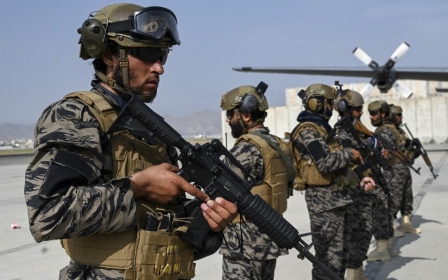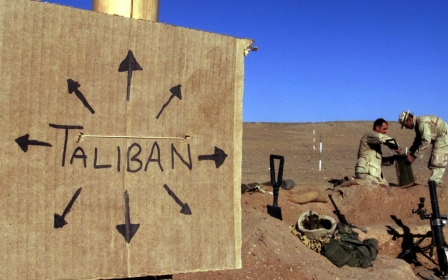Qatari Afghanistan talks spark debate over Taliban engagement
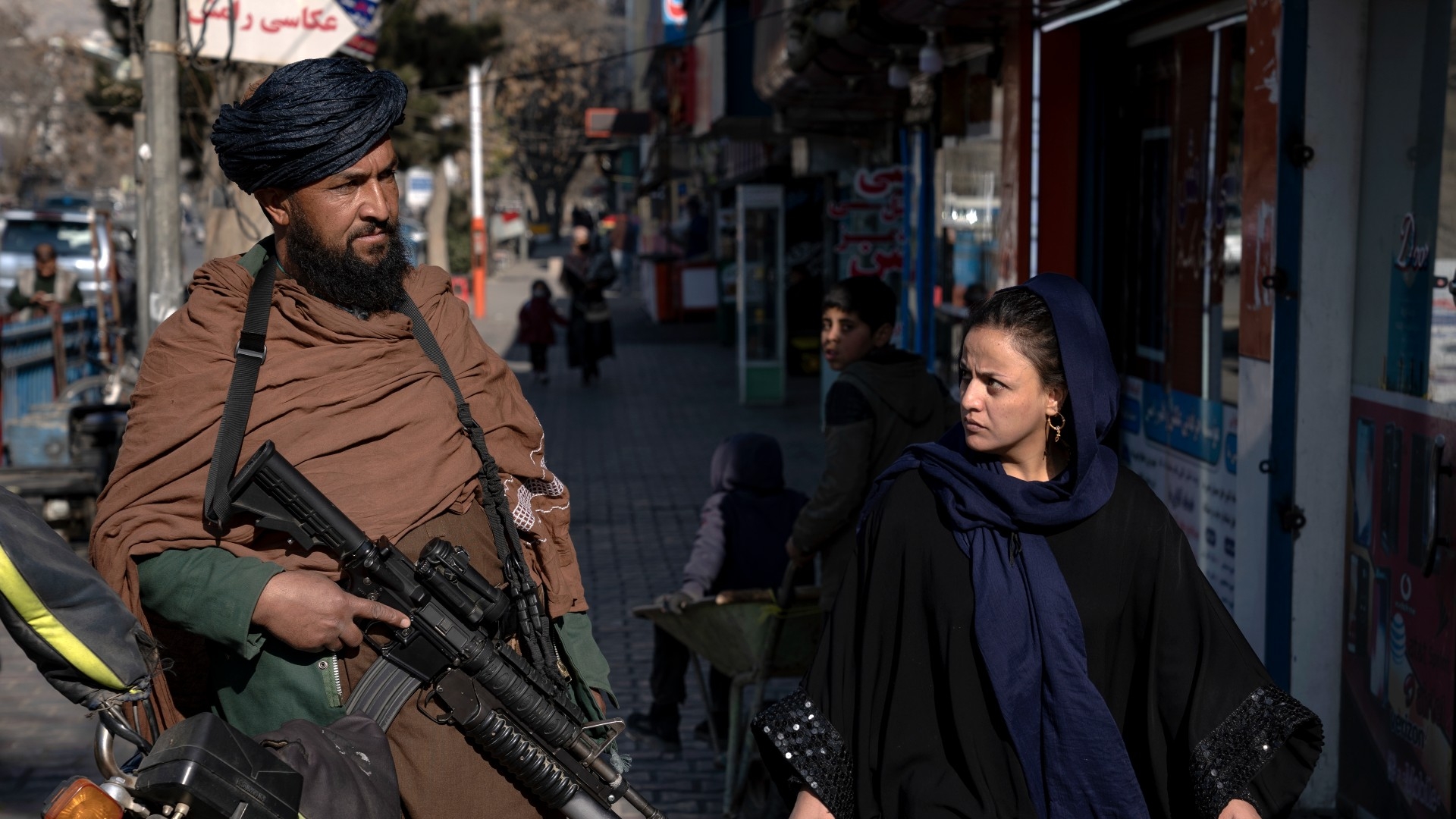
As the United Nations convenes a meeting in Qatar to discuss the situation in Afghanistan, a debate is being played out by Afghans at home and in the diaspora over engagement and negotiations with the Taliban government.
The Qatar talks, held on Monday and Tuesday, are focusing on the status of women and girls’ rights, countering terrorism and drug trafficking.
Though the Taliban-run Islamic Emirate government has not been invited to the gathering, the UN said it was conceived as a way to “achieve a common understanding within the international community on how to engage with the Taliban on these issues”.
The summit, which is being chaired by UN Secretary-General Antonio Guterres, comes days after the United Arab Emirates and Japan led the Security Council in issuing a condemnation of a Taliban order forbidding Afghan women from working with the UN.
The lead-up to the Doha meeting was filled with controversy, with the prospect of normalising Taliban relations at the fore.
Last month, Deputy Secretary-General Amina Mohammed alluded to an upcoming meeting that she hoped would “find those baby steps to put us back on the pathway to recognition”. “Is it possible? Don’t know,” she said.
The UN was quick to state that the Doha gathering was not the meeting she referred to, after Mohammed’s comments caused uproar among Afghans in the diaspora. In Kabul, a small group of women staged a rare street protest denouncing the possibility of Taliban recognition.
A positive, practical solution
For all the controversy, however, a group of individuals and organisations across civil society, aid organisations and the private sector inside the country said the Doha meeting should be used as a chance to rethink the international community’s approach to Taliban-run Afghanistan.
In a letter addressed to Guterres on Sunday, the signatories, all of whom reside in Afghanistan, call for “a principled, pragmatic, and phased approach to engagement with the Taliban authorities” in order to deal with what the UN itself has called a “humanitarian crisis”.
Four of the 21 signatories - including three women working in humanitarian aid - told Middle East Eye that, unpopular as it may be, engagement is the only way forward with an obstinate Islamic Emirate.
Kochay Hassan, executive director of the Afghan Women's Educational Center, said the letter represents “a practical solution” to the issues created by 19 months of life under the rule of the Islamic Emirate.
Hassan said when the document was initially being drafted all of the signatories wanted to ensure that the letter was offering practical solutions. “It’s impossible to just say ‘let’s sanction them, let’s boycott and ignore them’, that’s not a positive, practical solution,” she told MEE.
Instead, Hassan and the others set out to address specifics that they saw as necessary to dealing with the Islamic Emirate’s policies and limitations.
Sulaiman Bin Shah, a former deputy minister of commerce and business analyst, said he agreed to sign the letter because he fully supported the economic track suggested in it.
Those recommendations include the lifting of sanctions on financial transactions, restoration of the Swift international payments system, giving the Central Bank technical support and unfreezing the billions of dollars the bank has in assets frozen abroad.
Bin Shah said those recommendations were the result of “many, many hours of work and consultation directly with the Afghan private sector”.
Bin Shah, who has assisted several local businesses over the last 19 months, including women-led endeavors, said international engagement with the Islamic Emirate is necessary if the country wants to move forward nearly two years after the Taliban’s return to power.
The US withdrawal, fall of the Islamic Republic government and return to Taliban rule in August 2021 precipitated an economic collapse in Afghanistan.
Recently the Islamic Emirate has been touting financial gains it has secured through crackdowns on corruption and increasing trade, customs revenues and tax collection. However, the Taliban government is struggling to make up for the severe cutbacks in foreign aid since the former western-backed Islamic Republic was driven from power.
“War doesn’t fix anything, but dialogue does have a chance,” Bin Shah said.
There is also the issue of right of women to work. Currently, Afghan women are not allowed to work in most government posts, for NGOs or the United Nations. Sources familiar with the matter say that has greatly affected the earning potential of families in urban centres.
Hassan said she and her staff have all been working from home since December, when the decree banning Afghan women from working with NGOs was issued. Through special workarounds and exceptions, many NGOs have been able to keep their female staff by having them work from home. But there is fear that such exceptions could be undone at any time.
Faced with restrictions on her work, as well as education, travel and leisure, Hassan condemned the Taliban’s moves as “not justifiable at all”. But negotiations must at least be given a chance, she added.
'Taliban lobbyists'
Some online have seen the letter as a step in the right direction, calling it “a positive step” and “an important message”. Naturally, the proposal has also been met with its fair share of criticism.
In the 24 hours since the letter was published, detractors online have accused the signatories of being “Taliban lobbyists” and “benificiaries”.
Critics highlighted accusations of Taliban abuses - including restrictions on free speech and media, retaliatory killings and curbs on the rights of women - calling engagement counterproductive.
A former Afghan journalist cited the letter as yet another example of “the miseries” Afghanistan has faced over the last four decades.
One female signatory said she and her family have been subject to online harassment since the letter was made public. Because of this, she asked for her name not to be mentioned.
Another signatory, who could not be named due to workplace restrictions, said people must accept the reality that at the moment, the Islamic Emirate is in control.
She said the time for “screaming into a vacuum outside the country to isolate Afghanistan” is over.
With no appetite in Afghanistan for yet another military intervention, she said “dialogue is the only tool at our disposal" at this time.
Hassan agrees, saying the critics fail to recognise the on-the-ground realities of life in Afghanistan.
“They don’t know what it’s like to have lived through these last 19 months. We do, and that’s why we’ve made these proposals.”
Middle East Eye propose une couverture et une analyse indépendantes et incomparables du Moyen-Orient, de l’Afrique du Nord et d’autres régions du monde. Pour en savoir plus sur la reprise de ce contenu et les frais qui s’appliquent, veuillez remplir ce formulaire [en anglais]. Pour en savoir plus sur MEE, cliquez ici [en anglais].



